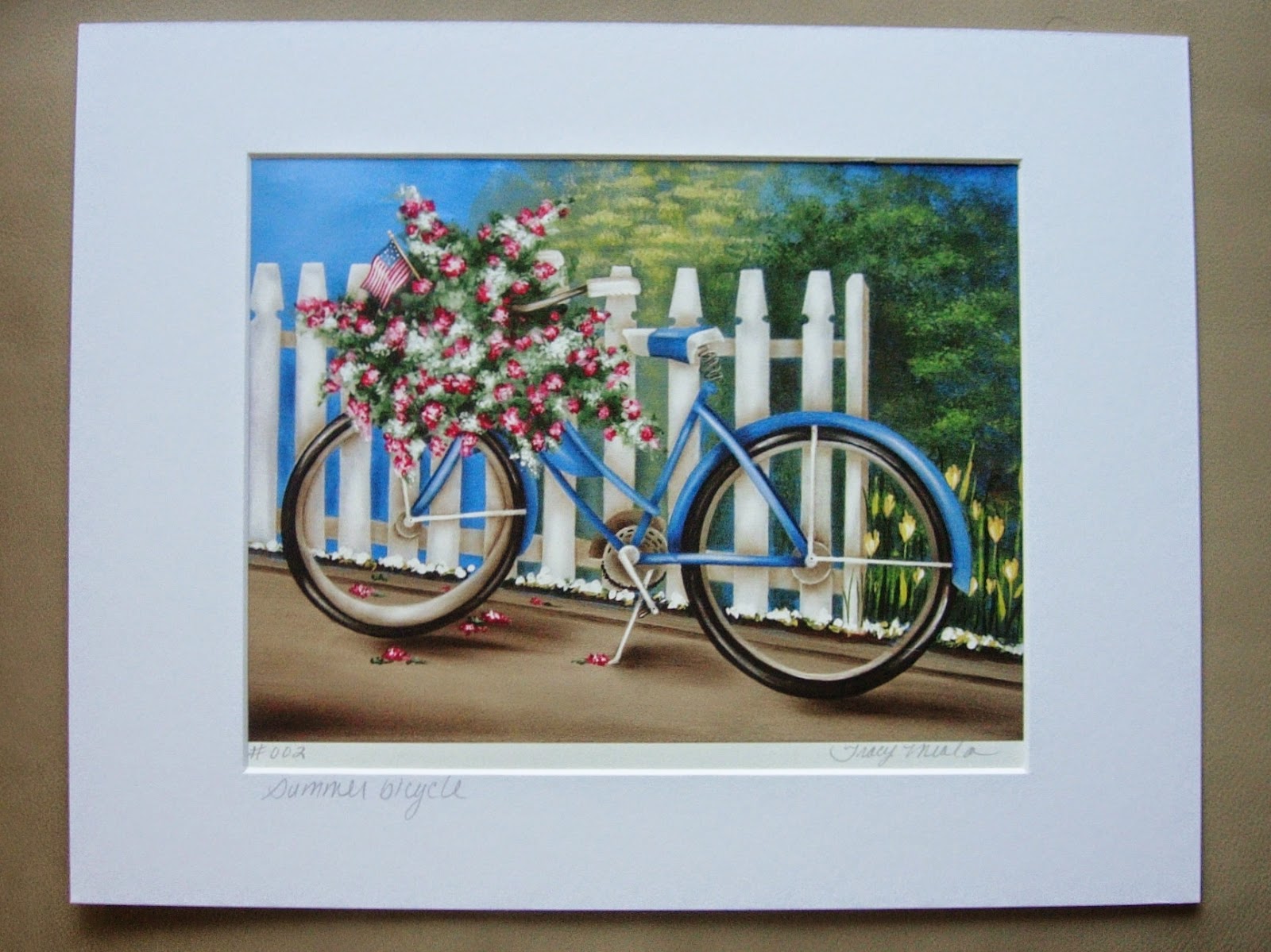Art Prints Explained - Remarques, Certificate of Authenticity
Art
Prints Explained
Article
3 – Matted, Remarques, Certificate of Authenticity
In this third and final article, let's look at some of the added "extras" that can be part of buying a giclée.
Matted
Prints or Giclées:
A matted print is surrounded or
framed (and attached to) by a heavyweight cardboard frame, called a Mat or
Mat-board. The mat-board gives the
print the appearance of being framed and larger than it really is, and some
think it has a more professional appearance as well. A matted print does give the collector a
better visual idea of what the print will look like when it is framed. However, there is a fee included in the print
price for the mat board and usually the mat is replaced when the print is
framed by a framing professional. If an
artist doesn’t present their giclées in a mat it doesn’t make them any less
professional. They may not want to risk
damage to the print by mounting it in a mat knowing that it will most likely be
removed and reinstalled in a complimentary mat when framing.
Personally
I don’t like to sell my prints installed in a mat. I generally only sell them in a mat-board
when a gallery or representative requests them matted. I feel that when a collector buys a print
they will have it matted and framed at the same time so that the mat will
complement the frame and fit into the frame properly and therefore a mat is a
wasted expense that is passed on to the collector.
Remarques:
A Remarque or Remark is a “live” small, drawing
or symbol that an artist adds to a giclée.
The
artist that had created the original work that has been reproduced in the
giclée, paints or draws a smaller piece of artwork on to the border/margin that
surrounds it. The presence of a remarque increases the value of the giclée. Sometimes a Remarque will simply be a small
symbol by the artist signature. The
artist Thomas Kinkade liked to leave a small fish or cross next to his
signature on his paintings. If he were
to sign a giclée and add one of those symbols, that could be considered a
Remarque. However a Remarque is more
notably a tiny piece of art that has been done “live” in the margin. For
example, if I were to do a Remarque on my print of “Red Cloth Still Life” I
might paint or draw a small apple or a candle flame in the margin. I have seen Wildlife artists include some
very intricate remarques. On a print of
a retriever out running through a marsh with a duck flying up, there could be a
tiny painted duck Remarque or maybe some cattails.
You
should expect to pay extra for a Remarque because it is a small piece of
artwork. It also makes the giclée a lot more valuable and desirable. It is advised that a print with a Remarque
be professionally framed due to the need for extending or notching the mat
window to accommodate it.
As I said before, I like to leave at
least 1 inch of margin around my reproductions.
That way I have plenty of room for a Remarque or personal message if the
collector requests. The extra margin can
be cut if it isn’t needed when framed.
Certificate of Authenticity:
An
original paper document that may include the artwork/print’s title, edition
size, the date printed or the date signed, the artist’s signature and/or
artist’s seal. Sometimes the document
will even include the artist’s bio, the archival information such as paper type
or ink type. The information on this
document will vary from artist to artist and according to what type of print
you are purchasing. Providing a certificate
of authenticity can actually increase the value of the print, making the print
a better investment for a collector. (As
a collector, which would you rather buy; one with authenticity documentation or
one without?) You will most often fine a
Certificate of Authenticity with limited edition prints, but there are some
artists that include them with all prints.
My Certificate document includes
information about the print, a short bio about me and an embossed seal. Currently I only include them with limited
edition prints but I am re-considering including them with some of my others as
well. Such as prints of paintings that
won awards and such.
Advantages of buying Artist Giclées:
Generally
speaking, when you buy a giclee from an artist, you won’t have a mass-produced
piece of artwork. Therefore, there is
less chance of having the exact same artwork as the one hanging on a neighbors
wall. There is always the exception to
the rule though, especially if the artist is a popular or local artist.
When
buying from an artist you can have a live artist signature on the art print
which you won’t find when buying art from a large manufacturer.
It
is more customized décor - You can choose the frame or finish to compliment
your style, home or office. They can be
custom framed for a more creative finish.
Or they can be installed into a ready-made frame for an inexpensive
finish. Either way, you get to do the choosing.
I am
an artist and yet I still enjoy buying giclées of other artist’s work. Whenever my husband and I go away, we look
for places that sell giclées or prints of local artists work. It gives us a memory of the place that we visited
and adds variety to our décor. We bought a large graphite piece when we were
in Paris and had it framed when we came home.



Comments
Post a Comment